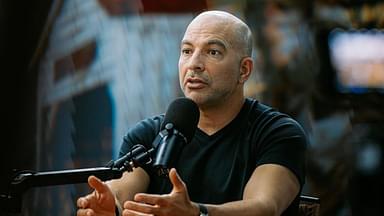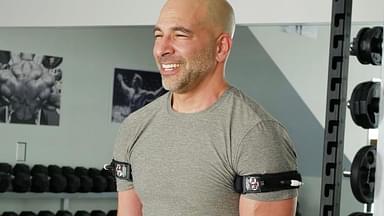With old age comes mobility issues that one might not be prepared for. It could result in some serious injuries, given how weak one’s body could potentially be. That’s why physician Dr. Peter Attia teamed up with back pain expert and researcher Dr. Stuart McGill to find ways to combat this.
In a candid conversation, the duo discussed what exercises could prevent elderly people from facing problems surrounding movement and flexibility. Something as simple as sitting on a stool often turns into a dangerous task, and Dr. Attia was curious about ways to prevent such accidents.
This led Dr. McGill into a rabbit hole, narrating his experience with a 70-year-old client who combatted this. He began by highlighting the core issue he noticed amidst his lectures, where therapists couldn’t seem to link old-age mobility with elite athlete training.
According to what the back expert theorized, to improve mobility, especially in senior people, performance training was the key. This came from his experience of training athletes who often delved into similar routines. However, he would be disappointed to witness therapists not putting the two phenomena together.
“There will be therapists and clinicians in the room who say we don’t deal with elite athletes; we deal with the elderly… and I think… I’m showing you what the human body has the potential to do, and your arrogance won’t allow you to learn what is possible.”
This experience led Dr. McGill to recall one of his poignant experiences when he worked with an elderly patient who faced trouble sitting on the toilet seat and feared that she might fall. Instead of recommending external care, the researcher showed her a simple and easy way to maintain her balance while sitting down and standing up.
“Many of those hard-baked surgeons and clinicians started to cry as well for the first time they realized all I did was teach her weightlifting 101.”
Instead of focusing on various kinds of therapies or equipment, all Dr. McGill observed was that seniors needed some strength training basics, especially in terms of posture, to get better. This simple technique provided them with a quality life.
But Dr. McGill warned Dr. Peter Attia of the dos and don’ts of deadlifting
While strength training sounds like a magic solution, one could easily go overboard and injure themselves. In a previous segment, the back expert laid down some dos and don’ts of the exercise to foster a positive yet cautious environment.
The main principle surrounding deadlifts during senior years was to focus on the recovery of muscles rather than establishing records. So, at an age where muscles and bones take time to heal, deadlifts could potentially lead to micro-fractures. To prevent this, one must avoid overdoing weight while deadlifting and spend time resting and recovering.





